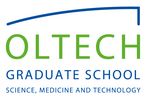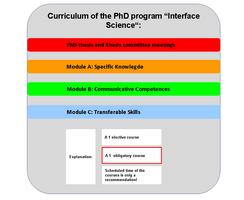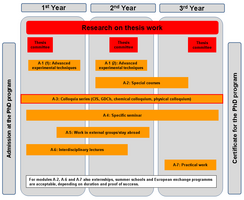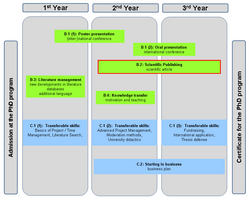Contact
Dr. Carsten Dosche (Coordinator)
Department of
Pure and Applied Chemistry
C. v. O. University Oldenburg
Faculty for Mathematics and Sciences
Molecular and Nanoscale Science (Interface Science)
Doctoral programme/PhD programme Molecular and Nanoscale Science (Interface Science)
Aim
The PhD programme offers a structured, research centered and interdisciplinary course programme for broadening and improving the physical and chemical knowledge on interfaces, including their preparation, functional interfaces, nanoscale and molecular interfaces, as well as advanced materials. Hereby, applications such as energy conversion, catalysis, photonics and biologic and biomimetic interfaces represent a special focus within the programme. The scientific course programme is embedded in the research activities of the Center of Interface Science (CIS).
In addition to the scientific course programme, the students are trained in communication, presentation and other transferable skills necessary in modern business life.
Contents
Central aspect of the education is to train the competences for independent research. This is mainly obtained by experimental or theoretical work under the surveillance of a university teacher and subsequent graduation in the framework of the current graduation regulations of the faculty for mathematics and science. This usually includes a presentation of the result in form of a PhD thesis and an oral disputation.
In addition to the research, the PhD programme offers the possibility to acquire the knowledge and skills necessary for modern business life. Therefore, the student can choose from a variety of courses, seminars and external activities.
The current programme is oriented on the research activities of the CIS and is completed by different courses for communication, presentation and soft skills.
Overview
The PhD programme "Molecular and Nanoscale Science" offers a three year PhD with courses in three different main topics:
- Specialised scientific knowledge
- Communicative competences
- Transferable skills
The core of the programme is an independent doctoral research project in one of the participating research groups.
In addition to their scientific research, students have to take courses in three main areas (30-60 credit points):
Specialised scientific knowledge (Module A)
In these courses students broaden and deepen their scientific knowledge in the context of their field of research and acquire the necessary skills to perform their laboratory work. Students take an active part in colloquia, congresses, summer schools and lab visits abroad (at least 12 credit points).
Communicative competences (Module B)
Students are trained in communication and presentation techniques and improve their expertise in knowledge transfer (at least 6 credit points).
Transferable skills (Module C)
Students can develop strategies and expertise for their scientific career. The main issues are data management (statistics), project management, scientific writing, publishing own research results, writing proposals for grants and funds, and training for job application (at least 6 credit points).
Current programme
Modules can be chosen from a wide range of offered lectures, which gives the students the possibility to acquire the individual competences necessary for their scientific work and future career aims.
However, modules have to be chosen from all three main topics:
- Specialised scientific knowledge (at least 12 CP)
- Communicative competences (at least 6 CP)
- Transferable skills (at least 6 CP)
For each main topic, the minimum number of credit points (CP) has to be reached, in sum at least 30 CP altogether.
The number of CP which can be obtained by attending an individual course can be found in the examination regulations (Prüfungsordnung). Here you can also find a list of all possible courses.
Additional information about lecturers and content of the courses for “Specialised scientific knowledge” (modules A1) can be found in the module manual (Modulhandbuch). The courses are not held each term.
Modules can be chosen from a wide range of offered lectures, which gives the students the possibility to acquire the individual competences necessary for their scientific work and future career aims.
However, modules have to be chosen from all three main topics:
- Specialised scientific knowledge (at least 12 CP)
- Communicative competences (at least 6 CP)
- Transferable skills (at least 6 CP)
For each main topic, the minimum number of credit points (CP) has to be reached, in sum at least 30 CP altogether.
The number of CP which can be obtained by attending an individual course can be found in the examination regulations (Prüfungsordnung). Here you can also find a list of all possible courses.
Additional information about lecturers and content of the courses for “Specialised scientific knowledge” (modules A1) can be found in the module manual (Modulhandbuch). The courses are not held each term.
Curriculum
The modules can be varied. However, your supervisor can recommend a rational order and focus of the courses according to your qualifications.
Here you can download the current curriculum:
Curriculum PhD programme "Molecular and Nanoscale Science"
Please note that your individual curriculum may look quite different.






